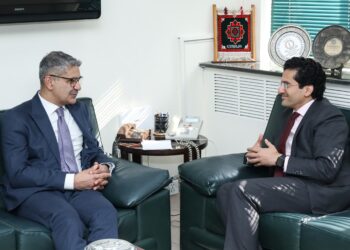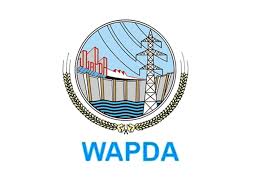ISLAMABAD: The National Electric Power Regulatory Authority (NEPRA) has sought accountability- excluding itself- in the power sector in order to achieve lasting improvements.
These comments were made by Member (Technical) NEPRA, Rafique Ahmad Shaikh, in his additional note on the Fuel Charges Adjustment (FCA) determination for July 2025, which is applicable across the country, including K-Electric’s (KE) service area. NEPRA has notified a negative adjustment of Rs 1.79 /kWh to refund Rs 24.4 billion to the consumers of Discos and K-Electric except lifeline consumers. Consumers will get relief in their bills of September 2025.
Mr. Shaikh frequently writes additional notes on NEPRA’s decisions regarding FCA or QTA, as the power sector hierarchy often fails to implement the regulator’s instructions—an issue that, according to him, frustrates the Authority.
According to the Member (Technical), persistent governance failures in the power sector have resulted in prolonged outages, delayed project execution, and inadequate transmission planning—all of which are directly contributing to rising generation costs and higher monthly FCA.
Examples include the continued forced outage of Guddu Unit-16 and the prolonged non-operation of the Neelum-Jhelum project. The 747 MW Guddu unit alone caused an additional cost of Rs. 968 million in July 2025, with cumulative losses reaching Rs. 121.32 billion since July 2022. Meanwhile, Neelum-Jhelum remains offline despite Rs. 75.5 billion already recovered from consumers through a dedicated surcharge—further burdening the system.
He further stated that delays in critical infrastructure projects such as the Lahore North Grid Station and SCADA-III reflect deep-rooted inefficiencies. Transmission bottlenecks—including the underutilization of the HVDC line (operating at just 39%) and persistent South-North corridor constraints, along with contractual obligations—caused Rs. 91 million in avoidable losses in July alone. These challenges are compounded by sluggish progress on key NGC initiatives. The Part Load Adjustment Charges (PLAC) reached Rs. 4.3 billion in July and Rs. 41.2 billion for FY 2024-25, underscoring the urgent need for better demand planning and improved system reliability. Collectively, these governance lapses are inflating power costs, driving up consumer tariffs, and jeopardizing the sector’s financial sustainability.
He emphasized that immediate and coordinated reforms are required to address operational inefficiencies, stabilize FCA, and restore sectoral efficiency. Though these issues may appear repetitive, their recurrence reflects persistent governance breakdowns—not isolated incidents, but a continuation of systemic failures. This repetition, he said, is symptomatic of chronic mismanagement.
“In my view, accountability is the critical missing link. Without real accountability, reforms alone will not be sufficient to achieve lasting improvements. Sustainable progress requires that institutions and individuals be held responsible for inefficiencies, delays, and poor decision-making. Only then can reforms be effective, efficiency be restored, and the power sector be put back on a stable and sustainable path,” Rafique Shaikh added.
According to the determination, written comments were also submitted by Rehan Jawed regarding the uniform application of FCA, summarized as follows:
The Islamabad High Court in W\.P. 2901/2025 directed that “status quo shall be maintained” with respect to NEPRA’s notifications dated 18.07.2025. Since the Court did not suspend these notifications, do they not remain legally operative? Does this not mean NEPRA continues to function under its notifications, but must not disturb the May–June 2025 FCA position as it stood on July 28, 2025?
The Supreme Court in Anoud Power (PLD 2001 SC 340) held that tariff notifications cannot operate retrospectively. Even if the Cabinet has ratified a uniform FCA policy, can it lawfully be applied to May–June 2025, or only prospectively from the date it was finalized and notified?
Para 12.15 of NEPRA’s KE MYT Determination (27.05.2025) and Notification of 18.07.2025 explicitly provide that until new FY 2024-25 references are determined and notified, the FY 2023-24 PPP references (Rs. 15.99/kWh) continue. Is NEPRA not legally bound to apply this continuity rule for May–June 2025 without deviation, until new references are formally notified—consistent with the Anoud Power judgment and NEPRA’s own determination?
The ECC’s communication dated 20.08.2025 conveyed consideration of a uniform FCA. However, under Section 31(7) of the NEPRA Act (1997, as amended), only Cabinet-approved and formally issued policy guidelines can bind NEPRA in tariff matters. In light of the Supreme Court’s Mustafa Impex judgment (PLD 2016 SC 808), does such a letter—absent Cabinet ratification—carry any legal force? Is NEPRA bound to act on Ministry or ECC letters, or only on properly approved policy guidelines notified by the Federal Government under Section 31(7)?
Karachi consumers have consistently paid positive FCAs when the rest of the country benefitted from negative FCAs (2023–2024). Now that KE consumers are likely due relief through negative FCA for May and June 2025, this benefit must not be delayed or denied through procedural uncertainty.
KE’s FCA references for 2024-25, if filed, must be finalized. The IHC has not suspended NEPRA’s MYT determination (27.05.2025) or notification (18.07.2025), which remain legally valid. For May–June 2025, FCA must proceed on the notified basis, using Rs. 15.99/kWh as interim if necessary, since FCA is a time-bound adjustment. Any uniform FCA policy can only apply prospectively after Cabinet approval and NEPRA notification; it cannot be imposed retrospectively for May–June 2025.
Explaining its position, NEPRA stated that while reliance on Anoud Power (PLD 2001 SC 340) is correct in principle, it must be read in its proper context. That judgment prohibits the creation of new liabilities through tariff notifications with retrospective effect. However, the instant matter is distinguishable in both law and fact.
NEPRA clarified that Fuel Charge Adjustments, by their very nature, are ex-post facto mechanisms designed to reconcile actual monthly costs with reference benchmarks already prescribed. This framework inherently operates retrospectively, as the costs of May–June are always trued-up in subsequent months. Hence, applying a uniform FCA policy to May–June 2025 does not create any “new” liability, but merely regularizes existing statutory obligations within the mechanism already established under Section 31(7) of the NEPRA Act.
NEPRA further underscored that Section 31 of the NEPRA Act empowers the Federal Government to issue binding policy guidelines on matters relating to uniform tariffs. Once such a policy is ratified by the Federal Cabinet, NEPRA is legally bound to implement it. By virtue of its overriding character, the Cabinet’s uniform FCA policy may cover the relevant adjustment period, including June 2025, particularly where excluding such a period would result in unequal treatment of similarly situated consumers.
Accordingly, the Authority is of the view that the uniform FCA policy, once ratified by the Cabinet and notified through NEPRA, is not barred from application with effect from June 2025. The Anoud Power judgment does not preclude such alignment, as it does not entail the creation of retrospective liability but only harmonization of existing consumer obligations under statutory mandate.
The Authority also observed that while KE consumers have borne positive FCAs when others benefitted from negative FCAs during FY 2023-24, there were also instances where the opposite was true. Therefore, in the spirit of tariff uniformity and in line with policy guidelines, FCA should be applied uniformly across all consumers going forward.
During the hearing, the Additional Secretary, MoE, reiterated the contents of the letter dated 20.08.2025 and submitted that the ECC’s decision has been ratified by the Federal Cabinet; however, the official minutes of the meeting are awaited and will be provided to NEPRA once available.
Moonis Alvi, CEO of KE, stated that KE has no objection to the uniform FCA proposal as it will bring greater predictability to the monthly FCA numbers.
Rehan Jawed, a commentator, appreciated the Ministry of Energy’s proposal for a uniform FCA but reiterated his concerns regarding its legality in the absence of formal approval by the Federal Government. Similar concerns were raised by Tanveer Ban, Aamir Sheikh, and Arif Bilwani.
Responding to Mr. Aamir Sheikh’s query regarding passing on the benefit of the captive gas levy to electricity consumers, the MoE representative submitted that a summary in this regard has been presented to the ECC separately and will be forwarded to NEPRA once approved. Mr. Sheikh also proposed that the benefit of the petroleum development levy should be passed on to consumers in electricity bills. Ends















